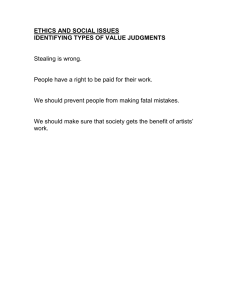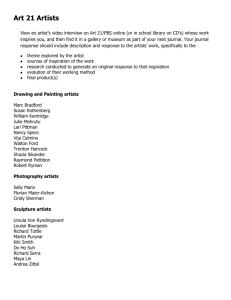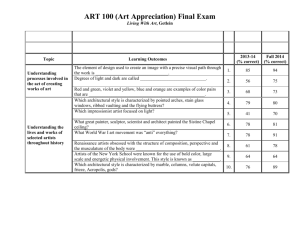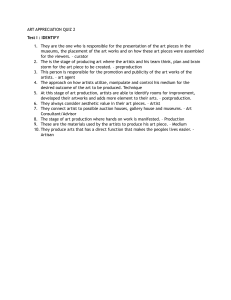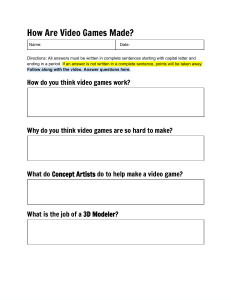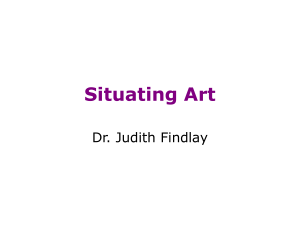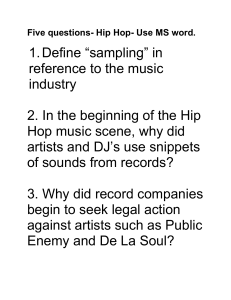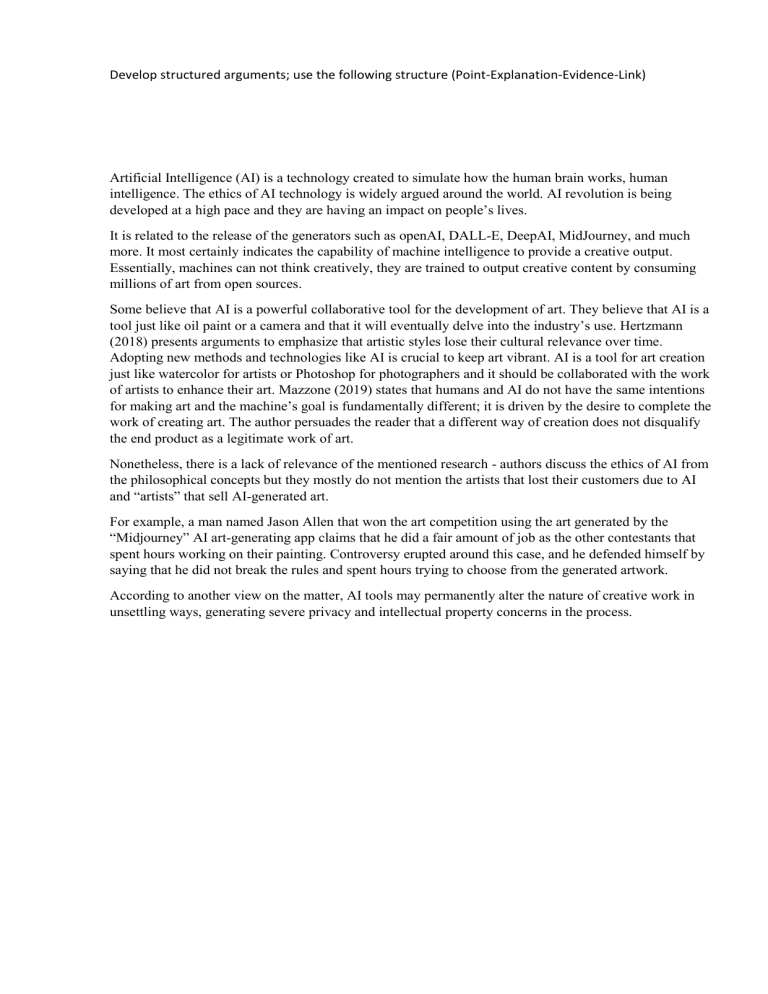
Develop structured arguments; use the following structure (Point-Explanation-Evidence-Link) Artificial Intelligence (AI) is a technology created to simulate how the human brain works, human intelligence. The ethics of AI technology is widely argued around the world. AI revolution is being developed at a high pace and they are having an impact on people’s lives. It is related to the release of the generators such as openAI, DALL-E, DeepAI, MidJourney, and much more. It most certainly indicates the capability of machine intelligence to provide a creative output. Essentially, machines can not think creatively, they are trained to output creative content by consuming millions of art from open sources. Some believe that AI is a powerful collaborative tool for the development of art. They believe that AI is a tool just like oil paint or a camera and that it will eventually delve into the industry’s use. Hertzmann (2018) presents arguments to emphasize that artistic styles lose their cultural relevance over time. Adopting new methods and technologies like AI is crucial to keep art vibrant. AI is a tool for art creation just like watercolor for artists or Photoshop for photographers and it should be collaborated with the work of artists to enhance their art. Mazzone (2019) states that humans and AI do not have the same intentions for making art and the machine’s goal is fundamentally different; it is driven by the desire to complete the work of creating art. The author persuades the reader that a different way of creation does not disqualify the end product as a legitimate work of art. Nonetheless, there is a lack of relevance of the mentioned research - authors discuss the ethics of AI from the philosophical concepts but they mostly do not mention the artists that lost their customers due to AI and “artists” that sell AI-generated art. For example, a man named Jason Allen that won the art competition using the art generated by the “Midjourney” AI art-generating app claims that he did a fair amount of job as the other contestants that spent hours working on their painting. Controversy erupted around this case, and he defended himself by saying that he did not break the rules and spent hours trying to choose from the generated artwork. According to another view on the matter, AI tools may permanently alter the nature of creative work in unsettling ways, generating severe privacy and intellectual property concerns in the process.
